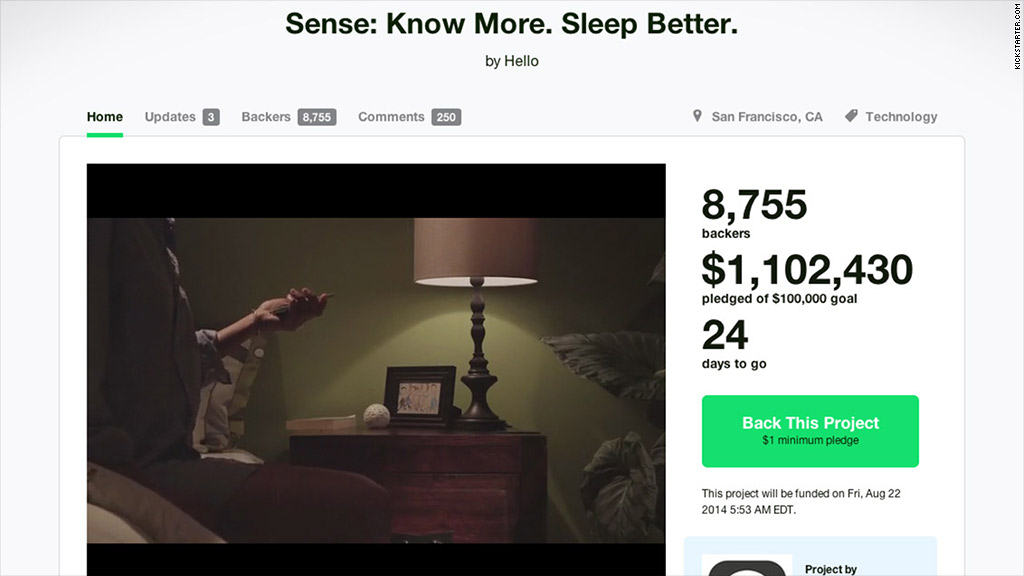I'm a horrible sleeper, and I've always had a couple of theories why:
I'm a journalist with an unfortunate habit of checking (and sometimes answering) emails in my sleep.
In my downtown New York City neighborhood, it's not uncommon for a bar goer to belt Adele songs outside my window at 3am.
Those are no doubt factors, but now a new technology is promising to a more clear assessment of my sleeping issues. Still in development, the product is called Sense, and includes a device that sits by your bed with multiple sensors measuring everything from humidity to temperature and ambient light.
It's paired with a sensor that attaches to your pillow to measure how you're sleeping — whether your restful or you're tossing and turning, for example.
"Maybe on the nights where it's a few degrees lower, you sleep ten or twenty minutes better -- that should be able to be shown to you," said James Proud, founder of Hello, Inc., the company behind Sense.
Hello, Inc., is the latest darling in Silicon Valley. Prominent investors are in on the deal, and it has already become a sensation on Kickstarter, raising over $1 million dollars in less than a week.
Proud is just 22 years old and was part of the first group of entrepreneurs to receive the Thiel Fellowship, a $100,000 grant given to promising entrepreneurs under the age of 20 to encourage them to bypass college and build out tech ideas for a couple years. He sold his previous company, GigLocator, at the age of 20.

Of course, there are the additional factors that contribute to the success of a Kickstarter product: Can the product be manufactured properly and on time? And will the actual device work as well as presented in the Kickstarter video?
Sense is also entering a crowded market of devices that promise users a good night sleep. Devices like Lark and Fitbit offer sleep tracking technology, for example.
Proud acknowledges the competition, and says Sense has an advantage: It not only says how you were sleeping, but why. Armed with that information, you can make changes to achieve a better night's sleep.
"You can not just see a time line of 'oh I fell asleep here and woke up here'', he says. "You can actually begin to see the why and what happened throughout the night."
Proud also notes that the device isn't wearable, a plus since some potential customers might find competing products uncomfortable.
The package currently costs $99 dollars for Kickstarter backers and will be sold for $129 when the campaign ends.

